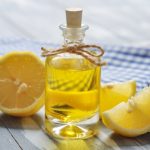
Algal oils, derived from various species of algae, are a rich source of lipids with a diverse range of applications. These oils have garnered significant interest due to their sustainable production methods and versatile properties. This essay explores the composition and properties of algal oils, with a particular focus on their uses in coatings.
Many of us will possibly use algae oil as a plant-based alternative. They are often sold as a rich source of highly concentrated omega-3 fatty acids to both humans and pets.
The commonest source is the Schizochytrium sp. which is a marine alga prized for its production of docosahexaenoic acid (DHA) (Wen et al., 2025).
Composition of Algal Oils
Algal oils are predominantly composed of triglycerides, free fatty acids, and a variety of bioactive compounds. The lipid content in algae can range from 20% to 80% of the dry weight, depending on the species and cultivation conditions.
Key components include:-
- Fatty Acids:
- Saturated Fatty Acids (SFAs): These include palmitic acid (C16:0) and stearic acid (C18:0). SFAs in algal oils contribute to the oil’s stability and shelf life.
- Monounsaturated Fatty Acids (MUFAs): Oleic acid (C18:1) is a prominent MUFA found in this oil. MUFAs are known for their beneficial health effects and stability.
- Polyunsaturated Fatty Acids (PUFAs): Algal oils are particularly valued for their high content of PUFAs, especially omega-3 fatty acids such as eicosapentaenoic acid (EPA, C20:5) and docosahexaenoic acid (DHA, C22:6). These fatty acids are crucial for human health and are typically sourced from fish oil, making algal oil a sustainable alternative.
- Pigments:
- Chlorophylls: These green pigments are essential for photosynthesis in algae and contribute to the bioactivity of algal oils.
- Carotenoids: Beta-carotene, astaxanthin, and lutein are notable carotenoids in algal oils. These compounds possess antioxidant properties and contribute to the stability and nutritional value of the oils.
- Sterols:
- Algal oils contain sterols such as stigmasterol and beta-sitosterol. These compounds have anti-inflammatory and cholesterol-lowering properties.
- Tocopherols and Tocotrienols:
- These forms of vitamin E are potent antioxidants that protect the oil from oxidative damage and extend its shelf life.
Properties of Algal Oils
The unique composition of algal oils imparts several desirable properties, making them suitable for a wide range of applications, including coatings.
- High Nutritional Value:
- The presence of omega-3 fatty acids, antioxidants, and bioactive compounds makes algal oils nutritionally superior to many other vegetable oils.
- Biodegradability:
- Algal oils are biodegradable, reducing environmental impact compared to petroleum-based oils.
- Stability:
- The presence of antioxidants like tocopherols and carotenoids enhances the oxidative stability of algal oils, making them suitable for long-term storage and use in various products.
- Renewability:
- Algae can be cultivated rapidly using non-arable land and saline water, making algal oils a sustainable and renewable resource.
- Functional Versatility:
- Algal oils can be chemically modified to produce a variety of derivatives, enhancing their applicability in different industrial sectors.
Uses of Algal Oils in Coatings
One of the emerging applications of algal oils is in the formulation of coatings. Coatings are materials applied to surfaces to protect, decorate, or add functionality. The use of algal oils in coatings is driven by their unique properties, environmental benefits, and functional versatility.
- Environmentally Friendly Coatings:
- Traditional coatings often rely on petroleum-derived products, which contribute to environmental pollution and resource depletion. Algal oils, being biodegradable and renewable, offer a green alternative. They reduce the carbon footprint of coatings and mitigate the environmental impact.
- Biobased Polyols for Polyurethane Coatings:
- Algal oils can be converted into polyols through chemical modifications such as transesterification and hydroxylation. These biobased polyols can replace petroleum-based polyols in polyurethane coatings. Polyurethane coatings derived from algal oil polyols exhibit excellent mechanical properties, chemical resistance, and durability.
- Drying Oils for Alkyd Coatings
- Some algal oils contain high levels of unsaturated fatty acids, which can polymerize upon exposure to air, forming a hard, durable film. This property makes them suitable as drying oils in alkyd coatings. Algal oil-based alkyd coatings offer good adhesion, flexibility, and resistance to water and chemicals.
- Epoxy Resins:
- Algal oils can be epoxidized to produce bio-based epoxy resins. These resins are used in protective coatings for metals, floors, and composite materials. Epoxy coatings derived from algal oils provide excellent adhesion, corrosion resistance, and mechanical strength.
- Functional Additives:
- Algal oils can be used as additives in coatings to impart specific functionalities. For example, the incorporation of algal oil-derived antioxidants can enhance the UV resistance and longevity of coatings. Additionally, the bioactive compounds in algal oils can impart antimicrobial properties to the coatings, making them suitable for use in healthcare and food processing environments.
- Hydrophobic Coatings:
- Algal oils can be chemically modified to produce hydrophobic coatings. These coatings repel water and protect surfaces from moisture damage. Hydrophobic coatings derived from algal oils are useful for outdoor applications, including building exteriors and marine environments.
- Thermal and UV Stability:
- The natural antioxidants present in algal oils enhance the thermal and UV stability of coatings. This makes algal oil-based coatings suitable for applications where exposure to heat and sunlight is a concern.
Case Studies and Research Developments
Recent research and development efforts have demonstrated the potential of algal oils in coatings. For example:
- Biopolyol Synthesis: Researchers have successfully synthesized biopolyols from algal oils for use in polyurethane coatings. These biopolyols exhibit desirable properties such as high hydroxyl content and low viscosity, leading to coatings with excellent mechanical performance and environmental benefits.
- Hybrid Coatings: Studies have explored the development of hybrid coatings that combine algal oils with other biobased materials, such as cellulose or lignin. These hybrid coatings offer improved mechanical properties, biodegradability, and cost-effectiveness.
- Antimicrobial Coatings: Research has shown that coatings incorporating algal oil-derived compounds exhibit antimicrobial properties. Such coatings are promising for use in medical devices, hospital surfaces, and food packaging to prevent microbial contamination and enhance hygiene.
Algal oils, with their rich composition and unique properties, offer significant potential in the field of coatings. Their environmental benefits, coupled with their functional versatility, make them an attractive alternative to traditional petroleum-based materials. As research and development continue to advance, algal oil-based coatings are likely to become increasingly prevalent in various industrial applications, contributing to a more sustainable and eco-friendly future.
References
Wen, J., Huang, L., Wang, D., Fan, G., & Yang, X. (2025). UV Mutagenesis Enhances DHA Biosynthesis in Schizochytrium sp. via Metabolic Reprogramming. Biotechnology Journal, 20(9), e70107. (Article)
Related Posts
-
Seed Oils Versus Olive Oils - Which Is Better?
A new study reveals seed oils to be better for you than olive oil. That…
-
Stabilising Lemon Oils
Lemon oils along with other citrus oils are readily prone to oxidation and because of…
-
The Many Uses And Benefits Of Lemon Oil
Lemon Oil is regarded as one of the essential oils for cleansing the skin, giving…



Leave a Reply